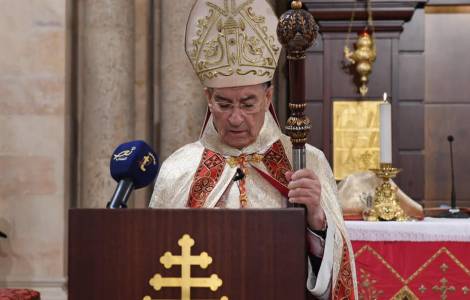
Bkerkè (Agenzia Fides) - The new US President Joe Biden could make a significant contribution to keeping Lebanon away from conflicts in the Middle East if he acted on the Lebanese motto of "neutrality" and avoided Lebanon in the context of alliances with one or the other regional powers competing for hegemony in the Middle East. This is the hope that Maronite Patriarch Bechara Boutros Rai expressed at the end of the homily of the Eucharistic celebration which he presided at the Patriarchate in Bkerkè on Sunday January 24. The Lebanese Cardinal congratulated Biden on the start of his presidential term and appealed to the new US President's Catholic faith and commitment to spiritual values, in the hope that his administration "looks at the Lebanon issue with this view, that would help keep it away from territorial conflict, and support the project of neutrality as a way to restore stability and prosperity".
During his homily, the Maronite Patriarch once again reiterated his appeal to Lebanese politicians who, in his opinion are responsible for a political stalemate that has led to serious economic, social and health crisis in Lebanon: "How can you not form a government?" asked the Patriarch, addressing the national political leaders, "while people complain of pain, starve and die of poverty and disease? (...) How can you not form a government while people are standing in front of banks and begging unsuccessfully to withdraw their money? How can you not form a government while borders are not protected, smuggling is widespread, national sovereignty is in jeopardy, independence is suspended and corruption is widespread? How can you not form a government when more than half of the population is unemployed and lives below the poverty line? (...)Are you not afraid of God, of the people, of conscience and the judgment of history? ".
The last Lebanese government in office, chaired by Prime Minister Hassan Diab, fell after the protests following the explosions in the port of Beirut on 4 August 2020. Sunni politician Saad Hariri, leader of the "Future" political party, was commissioned to form a new government on 22 October 2020, but has not yet been able to appoint the new cabinet, also due to the institutional tensions that have arisen between the Prime Minister and President Michel Aoun over the list of ministers who should form the government team. To complicate the scenario, there are also new international pressures that aim to condition the political profile of the new executive. (GV) (Agenzia Fides, 25/1/2021)